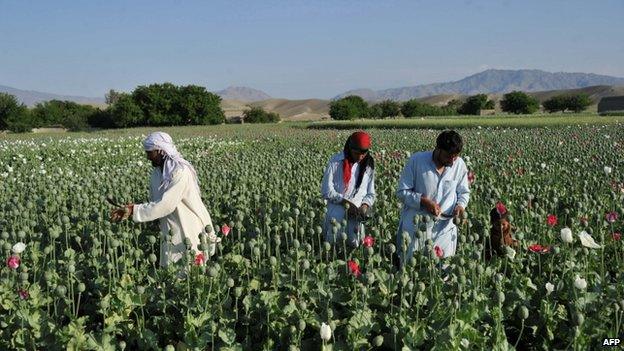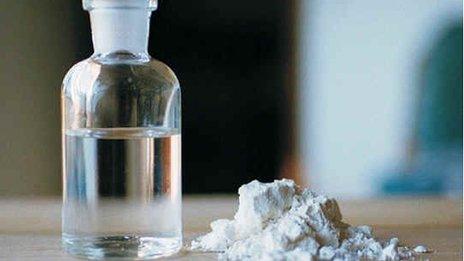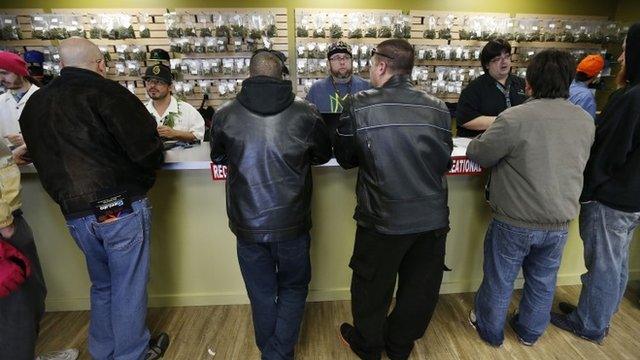UNODC drug report: Rise in US cannabis use treatments
- Published

The US states of Washington and Colorado have both legalised marijuana
Cannabis use in the United States has increased, with more people visiting hospital emergency departments over its use, a UN report says.
The potency of the drug in the US appeared to have increased, making it more harmful, the UN Office on Drugs and Crime's World Drugs Report added.
It said it was too early to tell if the legalisation of cannabis in two US states had had an impact on drug use.
Global illegal opium poppy farming rose 26% between 2012 and 2013, it added.
"In the United States, the lower perceived risk of cannabis use has led to an increase in its use," the report said, external, although global use of cannabis appeared to have fallen.
There was a 59% increase in US cannabis-related emergency department visits between 2006 and 2010, and a 14% increase in admission to treatment centres for drug abuse over the same period, the report said, citing US government data.

Afghanistan is the world's largest cultivator of opium
The percentage of people in the US aged 12 or older who admitted to using marijuana in the past year had increased from 10% in 2008 to 12% in 2012, the report added.
'Complex relationship'
One reason for the increased need for medical treatment is thought to be an increased potency in the drug, the report said.
"In some parts of the world we have seen that the content of the main psychotic substance, tetrahydrocannabinol (THC), has increased, and this in a way makes the cannabis more harmful," UNODC research branch chief Angela Me told the BBC.

Risks of cannabis use
The dangers of smoking cannabis, and the potential health benefits, have long been a source of controversy
Research has shown that regular cannabis use can increase the risk of developing mental health problems such as schizophrenia, particularly among those with a family background or pre-existence of such conditions
Other effects can include anxiety and paranoia
Like smoking tobacco, smoking cannabis can make asthma worse, cause wheezing and lead to lung diseases including cancer
Cannabis use is widely recognised as an inhibitor of co-ordination and concentration, making activities like driving more dangerous
Research has shown it can harm the development of the brain and cause memory loss

Washington state legalised possession of marijuana in December 2012, and Colorado did the same in January.
Uruguay also legalised cannabis in May.
Research showed that, among young people, there was a correlation between more permissive cannabis regulations and lower risk perceptions of cannabis use, the report added.
However, Ms Me said that "the relationship between risk perception and legalisation" was "complex".
"It's not clear one causes the other - you may have legalisation because people perceive a lower risk from cannabis; or a legalisation movement leads to a lower risk perception.
"But what we have seen is that there is clearly a correlation between the perception of risk and the start of cannabis use," she added.
Separately, the report said that illegal opium poppy farming had increased, especially in Afghanistan, where 209,000 hectares (800 square miles) of land was used to cultivate poppies in 2013.
Opiates and similar synthetic drugs, opioids, caused the most drug-related deaths worldwide, it said.
Meanwhile, the report said the global availability of cocaine had fallen in 2012, although use remained high in the North and South America.
- Published20 May 2014

- Published1 January 2014

- Published6 December 2012
